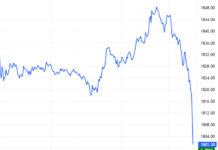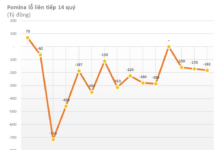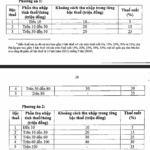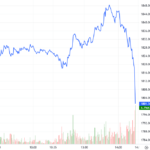This is the expert opinion of economist Assoc. Prof. Dr. Ngo Tri Long, shared with the Labor Newspaper regarding the government’s request at the September 2025 specialized law-making session. The request concerns the addition of regulations to impose personal income tax (PIT) on income from gold trading activities.
Reporter: In your opinion, why has the government requested the addition of a gold transaction taxation policy at this time?

Assoc. Prof. Dr. NGO TRI LONG: The addition of this policy at this time is not coincidental. The domestic gold market has been experiencing significant fluctuations for several months, with SJC gold prices surpassing 135 million VND per tael, approximately 20 million VND higher than global prices.
This unusual gap reflects substantial speculation, leading many small investors to buy at peak prices and suffer heavy losses when prices plummeted to nearly 129.5 million VND per tael within a few days. When price expectations overshadow actual supply and demand, societal risks increase, affecting household assets, hoarding behavior, and capital flow.
Additionally, gold management policies are being restructured. Decree 232/2025/ND-CP on gold market management has expanded legal supply sources, and preparations are underway for businesses and banks to import and produce gold bars.

Citizens trading gold at Thiec Market (Ho Chi Minh City). Photo: TAN THANH
In this context, removing gold from the “gray area” through taxation is essential to harmonize policies and curb speculation. Currently, individuals trading gold are largely untaxed, while securities are subject to clear PIT mechanisms, creating inequality among investment channels.
Citizens agree with taxing gold transactions like securities and real estate but are concerned about fairness in implementation, as many buy gold for savings or weddings rather than short-term trading. What are your thoughts?
– Indeed! The principle of taxing gold transactions must be clear, targeting profits from transactions rather than everyday gold payments.
Currently, gold business taxes primarily apply to enterprises, while individuals trading gold bars are largely exempt.
This gap allows large-scale hoarding and dumping to go unregulated, causing unpredictable market fluctuations. Including income from gold trading in PIT will ensure accurate, sufficient, and timely tax collection, reducing asymmetric information speculation.
Do other countries tax gold, and what model could Vietnam adopt?
– International experience shows diverse approaches. The U.S. treats gold as a “collectible,” taxing long-term gains at up to 28% and short-term gains at regular PIT rates.
Germany uses a holding period approach, exempting taxes if gold is held for over a year, while taxing it within the first 12 months. This discourages short-term trading and encourages long-term savings. The UK exempts taxes on gold as legal tender but taxes other forms.
India imposes a 20% tax on long-term gains (after 3 years), with indexation, and short-term taxes at regular rates. Common to all is taxing profits, with electronic invoicing and reporting to reduce compliance costs.
For Vietnam, two options are under discussion. The first is taxing actual profits, which is fair and reflects profitability, encouraging long-term investment with incentives for holding over 12 months. However, it requires tracking costs and storing documents, complicating small transactions.
The second is deducting a small percentage from sales revenue, similar to securities taxation. This is easy to collect and reduces tax evasion risks but may disadvantage frequent traders with low profits.
A hybrid approach combines a small deduction at the source with year-end profit-based settlement, allowing previously paid taxes to be deducted. This is simpler and fairer, especially for professional investors.
For example, selling 5 taels of gold at 130 million VND each incurs a 0.1% deduction on sales, totaling 325,000 VND. If the net profit is 10 million VND, the profit-based tax can offset the 325,000 VND already paid.
Exemptions are crucial to avoid taxing small savings. A threshold for total net profit or annual sales could be set, as in many countries.
Additionally, gold transactions for weddings or gifts should be tax-exempt.
Will the tax policy stabilize the market and narrow the price gap between domestic and international gold prices?
– In my view, the policy aims to increase budget revenue while regulating market behavior. Higher transaction costs will reduce short-term trading and extreme price volatility. The price gap will narrow as short-term speculation becomes less attractive, combined with increased legal supply under Decree 232.
More importantly, the policy will place gold on the same tax level as other investments, avoiding unreasonable favoritism.
For effectiveness, the policy must be flexible and transparent. The law should clearly state its goal of combating speculation and ensuring fairness, not targeting small savings. Two tax payment options should be maintained: a small deduction at the source for all transactions, with profit-based settlement for those with full documentation.
Reasonable exemptions, long-term holding incentives, mandatory electronic invoices, and fraud control are essential. Public communication, tax estimation tools, and support channels are crucial during initial implementation.
A 6-9 month transition period is needed to standardize electronic invoices, connect data between gold businesses, tax authorities, and banks, and train citizens and businesses.
“The Ministry of Finance will finalize gold transaction tax regulations for inclusion in the draft amended PIT Law, to be submitted to the National Assembly at the 10th session in October 2025.”
An Inevitable Step
According to Assoc. Prof. Dr. Ngo Tri Long, including income from gold trading in PIT is inevitable for stabilizing the gold market and ensuring fairness among investment channels. The key is designing a streamlined, feasible policy that curbs speculation without burdening citizens.
“A hybrid mechanism combining small source deductions with profit-based settlement, reasonable exemptions, and long-term holding incentives, supported by electronic data infrastructure, is the most viable path to a more transparent gold market, reduced volatility, and strengthened public trust in policies,” Long emphasized.
Warning: Avoid the Rush, Don’t Join the Gold Rush!
In recent times, long queues have been forming outside gold shops in Ho Chi Minh City as residents rush to buy gold. In response, the State Bank of Vietnam’s Branch in Zone 2 (Ho Chi Minh City) has requested that local units and organizations enhance their information and propaganda efforts to ensure that citizens are well-informed about the legal regulations governing gold trading and business activities.
“Vietnam’s Ministry of Finance Explains Decision to Maintain a 35% Personal Income Tax Rate”
The latest draft of the Personal Income Tax Law (amended) retains the highest personal income tax rate at 35%. This means that taxable income over VND 100 million will be subject to a 35% tax rate.
“The Benefits of Registering for a 17% Tax Rate: Why It’s a Smart Move for Your Business”
The Ministry of Finance has recently submitted to the Ministry of Justice a dossier for appraisal of the Personal Income Tax Law (amended). This latest draft features several significant changes, most notably the introduction of a mechanism to calculate taxes on income and apply a 17% tax rate for households and individuals with business revenues exceeding the prescribed threshold.


































